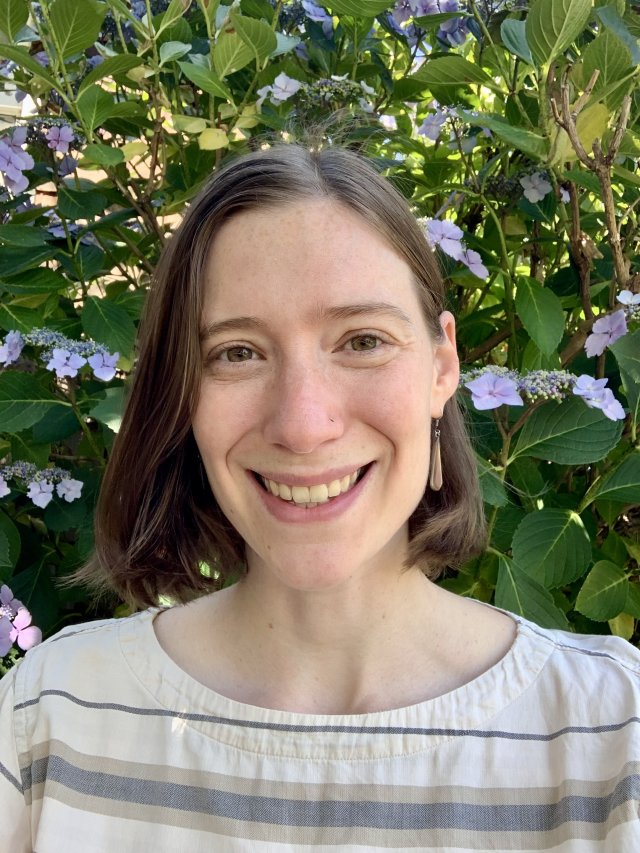Meet EPA Researcher Amalia Handler, Ph.D.

EPA researcher Amalia Handler works on modeling nutrients and harmful algal blooms in waterbodies across the lower 48 states of the US. Currently her main project is modeling the spatial drivers of harmful algal blooms in lakes that are caused by cyanobacteria across the lower 48 states. The project is investigating the landscape, climate, and lake characteristics that are associated with blooms by leveraging multiple EPA datasets including the National Lakes Assessment, the National Nutrient Inventory, and LakeCat. The aim is to estimate cyanobacteria and risk of a common cyanobacterial toxin, microcystin, in as many lakes as possible across the US. It’s a follow-up on previous research on the estimation of the risk of microcystin among satellite-monitored lakes.
Tell us about your background.
I have a bachelor’s degree in environmental science from Franklin & Marshall College. I earned my Ph.D. at Arizona State University in the lab of Nancy Grimm, Ph.D. I studied nitrogen cycling in streams and wetlands using a combination of biogeochemical and ecosystem ecology approaches that included field and lab experiments as well as network and statistical modeling.
When did you first know you wanted to work in environmental science?
I had a mentor early in my career that shared with me the remarkable microscopic world of soils—a dynamic mixture of microbes, plants, fungi, minerals, detritus, and so much more. He would say, “The biggest things in this world are done by the smallest organisms.” That feeling of being in awe of these organisms stuck with me. It continues to inspire my work on how small organisms can control big things, like nitrogen cycling, water quality, even the climate.
What do you like most about your job?
Two things, really. First, I get to work with an amazing group of researchers who are eager to collaborate and provide great insights. Second, almost every person has had some personal experience with harmful algal blooms, so it’s very meaningful work.
How does your science matter?
Unfortunately, harmful algal blooms are widespread, but getting data on the enormous number of waterbodies across the country is really challenging. The research I do leverages the data where we have it and estimates the risk of blooms at unmeasured lakes. This estimation helps identify the number and location of lakes that may need further bloom monitoring.
If you weren’t a scientist, what would you be doing?
I think I would be a professional facilitator. I really enjoy bringing people together for discussions and leading project teams. I learn a tremendous amount from others in these settings.
What advice would you give a student interested in a career in science?
Try out many different fields of science. I have had experiences in everything from conducting conservation activities in state parks, to public health as it related to lead exposure in children, to researching the extent to which foxes rely on human food. There are so many fields of science and ways to be a scientist!
What do you think the coolest scientific discovery was and why?
The endosymbiotic theory. This is the concept that eukaryotic cells (those in plants and animals) developed from larger cells by engulfing smaller, free-living cyanobacteria. The cyanobacteria eventually continued to function inside the larger cell and, voilà, there are now cells with organelles like mitochondria and chloroplasts! I think it’s so neat that the cells that make up the human body are the product of a cooperative evolutionary process.
If you could have dinner with any scientist, past or present, who would you choose and what would you talk about?
I am a huge fan of the writings of Oliver Sacks, and it would be a pleasure to have dinner with him. Sacks was a physician and wrote fascinating and deeply caring accounts of patients he saw with neurological disorders. His books made me think about science as a field that inspires both awe and compassion.
Editor's Note: The opinions expressed herein are those of the researcher alone. EPA does not endorse the opinions or positions expressed.
